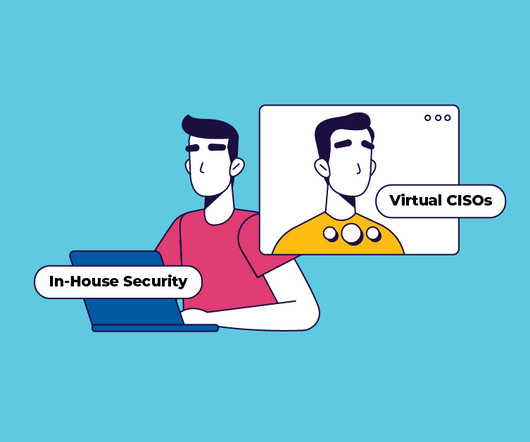In today’s digital age, cybersecurity threats have become increasingly sophisticated, placing businesses of all sizes at significant risk. Cybersecurity isn’t just a priority for tech firms; it’s crucial for every industry. At the heart of this defense is the Chief Information Security Officer (CISO), the executive responsible for setting and overseeing a company’s security policies and strategies. But as more businesses recognize the importance of this role, the question arises: should they invest in a full-time, in-house CISO, or is consulting with an external CISO the better choice?
Let’s explore the pros and cons of CISO consulting versus hiring an in-house CISO, and how to determine which option might be best for your organization.
The Role of a CISO: A Brief Overview
Before diving into the differences between in-house and consulting CISOs, it’s essential to understand the responsibilities of a CISO. Typically, a CISO is responsible for:
- Developing and implementing security policies aligned with the organization’s objectives.
- Managing security incidents, including response and recovery efforts.
- Overseeing the security team and ensuring employees are trained in cybersecurity best practices.
- Ensuring compliance with industry regulations and standards.
- Assessing and managing risks posed by new technologies, vendors, or partners.
A CISO’s responsibilities often extend beyond day-to-day tasks, with a strong focus on strategic planning and long-term risk management. It’s a demanding role, and filling it well can mean the difference between a business that’s prepared for cyber threats and one that’s vulnerable.
Option 1: In-House CISO
An in-house CISO is an employee who works exclusively for your organization. This individual is integrated into your company’s culture, understands your industry-specific challenges, and is readily available to respond to threats as they arise.
Pros of an In-House CISO:
- Deep Understanding of the Business: An in-house CISO has the advantage of being immersed in your company’s day-to-day operations and internal culture. They understand the nuances of your business, making it easier to develop security strategies that are tightly aligned with organizational goals.
- Immediate Response Capability: When a security threat arises, having an in-house CISO means they can respond promptly, coordinating with other departments in real-time. This proximity to the team allows for rapid decision-making and quicker resolutions.
- Customized Long-Term Strategy: An in-house CISO can develop a tailored security roadmap and adjust it as needed. This continuous alignment is beneficial for organizations looking for a long-term cybersecurity vision.
- Consistent Monitoring and Management: Security threats can arise at any time. With an in-house CISO, your company benefits from constant monitoring, which may reduce the time it takes to detect and respond to incidents.
Cons of an In-House CISO:
- High Cost: Employing a full-time CISO can be expensive. Given the high demand for skilled cybersecurity professionals, hiring a qualified CISO can cost upwards of $200,000 per year, depending on your location and industry.
- Limited External Perspective: An in-house CISO might become siloed within the organization’s operations and processes, which can lead to a limited perspective on evolving external threats and industry-wide trends.
- Potential Skills Gaps: Cybersecurity is a rapidly evolving field, and it can be challenging for a single individual to keep up with every new threat and technology. An in-house CISO may require ongoing training and certifications to remain effective, which adds to the overall cost.
Option 2: CISO Consulting
CISO consulting involves partnering with an external cybersecurity expert or firm. These consultants typically work with multiple clients, providing expertise on a part-time or project basis. CISO consultants can offer the same level of strategic guidance as an in-house CISO but on a more flexible basis.
Pros of CISO Consulting:
- Cost-Effective Solution: Hiring a CISO consultant can be more affordable, particularly for small to medium-sized businesses that may not have the budget for a full-time security executive. You only pay for the services you need, making it a scalable solution.
- Access to a Broader Range of Expertise: CISO consultants often work with multiple clients across various industries. This exposure gives them insights into emerging threats and best practices, which can provide your business with a broader, up-to-date perspective on cybersecurity.
- Quickly Adaptable for Project-Based Needs: If your business requires specialized expertise for a specific project or short-term initiative, CISO consulting is ideal. For example, if you’re launching a new product or undergoing a digital transformation, a consultant can provide targeted guidance.
- Reduced Onboarding and Training Costs: Unlike an in-house CISO, consultants arrive with the knowledge and experience necessary to perform the role immediately. This can be particularly valuable if your organization requires a quick, effective solution without lengthy onboarding or training.
Cons of CISO Consulting:
- Limited Availability: Consultants typically split their time across multiple clients, so they may not be as readily available as an in-house CISO. This could delay response times in the event of an urgent security incident.
- Less Familiarity with Company Culture: A CISO consultant may not be as deeply embedded in your organization, making it challenging to understand the internal dynamics that could impact security strategies.
- Potential Gaps in Long-Term Planning: While a CISO consultant can provide strategic guidance, they may not be as invested in your long-term cybersecurity vision as a full-time executive would be. If you’re looking to build a deeply integrated security culture, an external consultant may not offer the continuity you need.
Which Option is Right for Your Business?
The decision to hire an in-house CISO or engage a consultant ultimately depends on your company’s unique needs, budget, and growth stage. Here are a few considerations to help you make an informed choice:
- Budget Constraints: If your company is operating on a tight budget, a CISO consultant can provide high-level expertise without the cost of a full-time salary. However, if cybersecurity is a core business need, investing in an in-house CISO might be worth the expense.
- Company Size and Complexity: Large enterprises with complex security needs may benefit more from an in-house CISO who can coordinate across multiple departments and manage a dedicated team. Smaller companies or startups may find a consultant’s expertise sufficient to protect their assets and grow securely.
- Risk Profile and Industry Requirements: Consider the specific risks your industry faces. If your organization operates in a high-risk field—such as finance, healthcare, or energy—having an in-house CISO with industry-specific knowledge may be beneficial. Conversely, if your industry faces fewer regulatory pressures, a consultant could provide the necessary coverage.
- Growth Stage and Strategic Needs: If your company is in a rapid growth stage, having a CISO consultant who can adapt to changing needs may be more suitable. However, if your company has a stable and established structure, an in-house CISO can help build a robust security framework.
Final Thoughts: Making the Best Choice for Your Business
Cybersecurity is a mission-critical aspect of any business, and the CISO plays a central role in this defense. While an in-house CISO offers continuity, immediate availability, and deep integration into your company’s culture, CISO consulting provides flexibility, cost savings, and access to a broader range of expertise.
In the end, both approaches can be highly effective when aligned with your organization’s specific needs and goals. Whether you opt for an in-house CISO or consulting services, prioritizing cybersecurity will help safeguard your business’s assets, reputation, and long-term success. As the cybersecurity landscape continues to evolve, having the right leadership in place—be it internal or external—will ensure that your company is prepared for the challenges ahead.








